Vladimir Kramnik is in fifth place with five golden games, one more than Mikhail Tal. Bobby Fischer and Boris Spassky each have three.
Kramnik’s golden games:
Informant 66: Kasparov – Kramnik, Dos Hermanas, 1996
Informant 79: Kramnik – Hübner, Dortmund, 2000
Informant 80: Kramnik – Kasparov, London, 2000
Informant 82: Kramnik – Anand, Dortmund, 2001
Informant 97: Kramnik – Bruzón Batista, Turin, 2006
Kasparov – Kramnik
Black won thirty of the first one hundred golden games. Kramnik’s first “best game” in Chess Informant puts him in that rare company with a win against the then reigning World Chess Champion. My database shows a mere eight Garry Kasparov losses in 2006—two to Deep Blue, two to Anand, one each to Veselin Topalov and Alexey Dreev, and two to Kramnik. Both Kramnik wins were with Black. The other was a rapid game.
This game started as a Semi-Slav Meran that became a wild open game with both kings in apparent danger. After 19.exf7+, Kramnik’s king looks exposed.
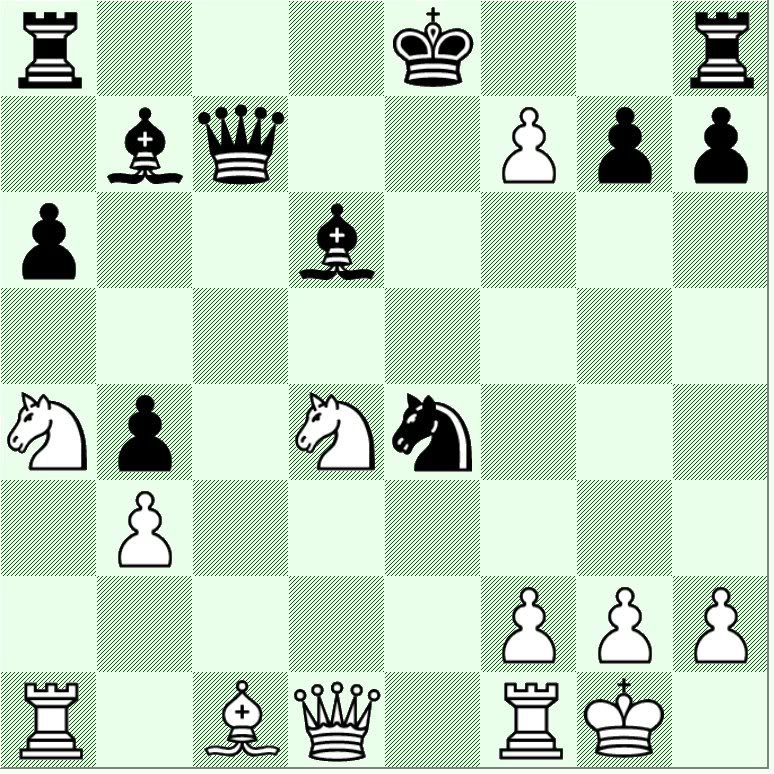
But, after 19…Qxf7 20.f3 Qh5 21.g3 O-O 22.fxe4 Qh3 Kasparov’s monarch appears unsteady. Kramnik was down a knight, so he gave up more material to start his king hunt. On move 29, Kramnik missed a checkmate in four due to time pressure, but the White king still found no escape without losing most of his troops.
Kramnik – Hübner
Robert Hübner’s last place finish in the Dortmund SuperGM tournament might obscure that he once competed in World Chess Championship Candidates matches, but the winners of this event are battling in the championship itself. Kramnik beat Anand, but both finished with 6 of 9. Deep Junior also played in this event, finishing with an even score that included a draw with Anand. Only Kramnik and Jeroen Piket managed wins against the beast.
Kramnik’s 11.h4 had first been played in an email championship earlier in the year, and only nine times since. It’s the sort of move that appeals to me
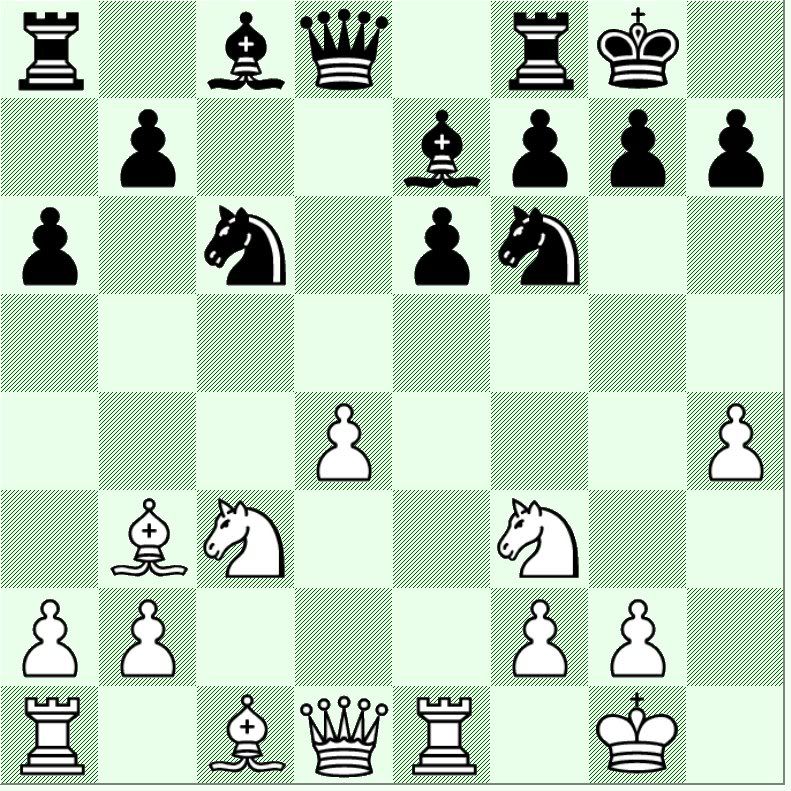
The decisive point in the game, however, came when Kramnik found the tactics to set up a skewer and pin along the a2-g8 diagonal, followed by a discovery on the e-file that facilitated piling on the pinned rook.
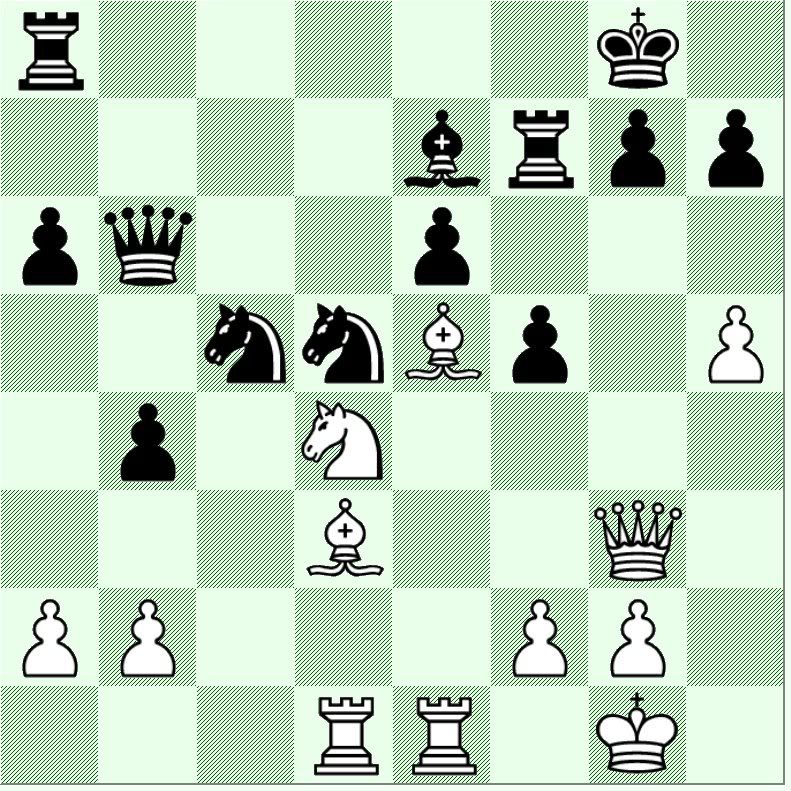
25.Nf5! exf5 26.Bc4 Nf6 27.Bc7 1-0
Kramnik – Kasparov
Kramnik beat Kasparov’s Grünfeld Defense in game two of their World Chess Championship battle in London in October 2000, also known as the Brain Games WCC per an agreement with the corporate sponsor. Raymond Keene called it Kasparov’s “first serious competitive” loss in nearly two years (The Brain Games World Chess Championship, 52).
Those believing that opposite colored bishop endgames are drawn, even when there are rooks on the board, would do well to study the continuation of this game after 27.e6
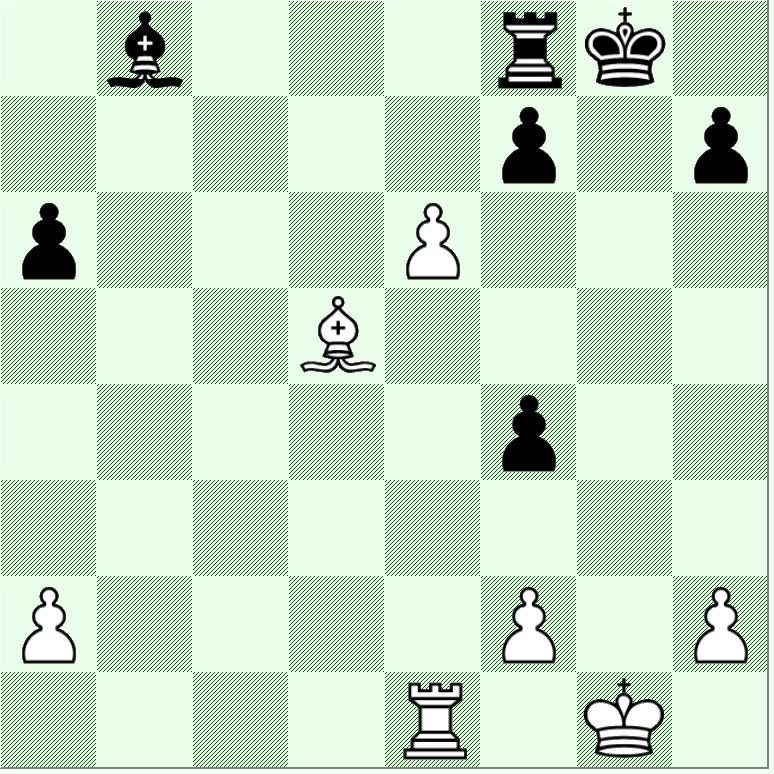
Kramnik – Anand
Thie Queen’s Gambit accepted gave Kramnik an isolated queen pawn that he sacrificed to give Anand a one pawn advantage with his own IQP. The game started getting interesting after 19.g4!
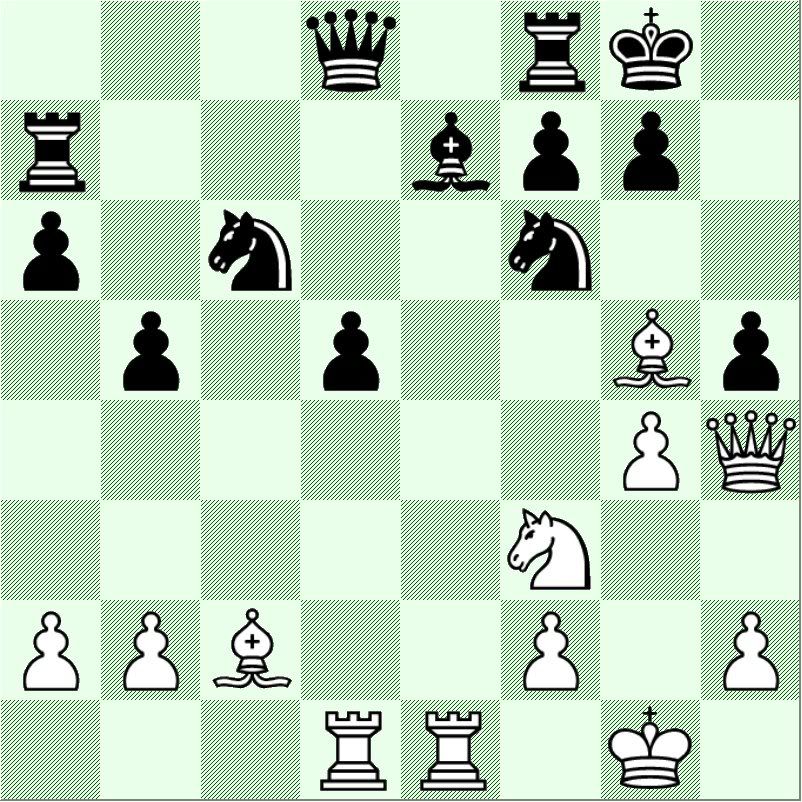
Eight moves later, Kramnik has an extra pawn and an attack.
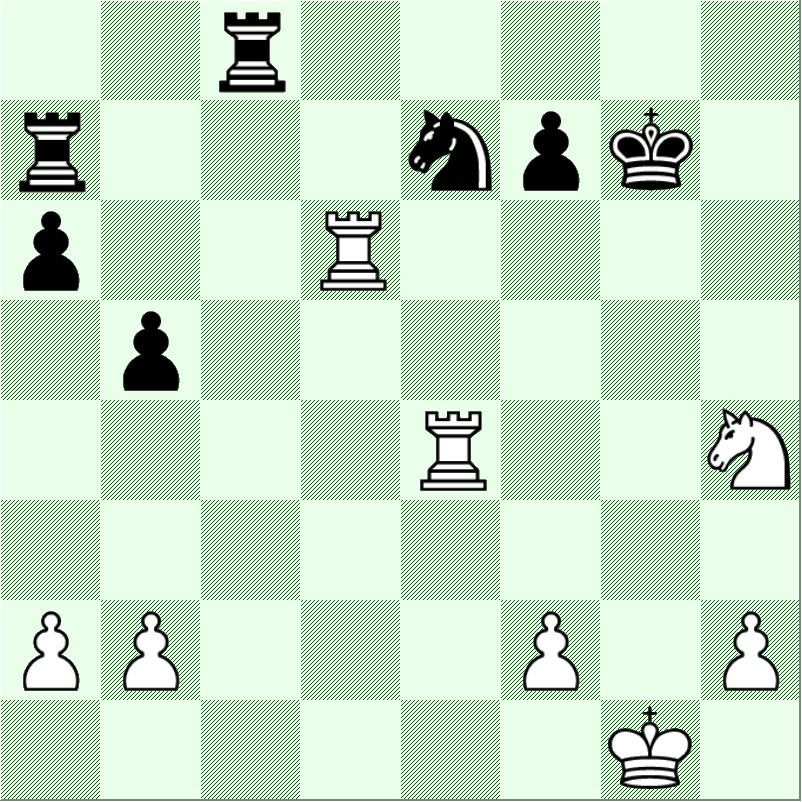
Kramnik – Bruzón Batista
Lazaro Bruzón adopted the Cambridge Springs Defense of the Queen’s Gambit Declined. This event, the 37th Chess Olympiad, marked Kramnik’s return to competitive chess after a break for treatment of ankylosing spondylitis. He won the individual medal for Best Rating Performance.
After Kramnik castled, we see a position where it appears that his pieces are confined to one-third of the board, but they are far better prepared for action than Bruzón’s pieces.
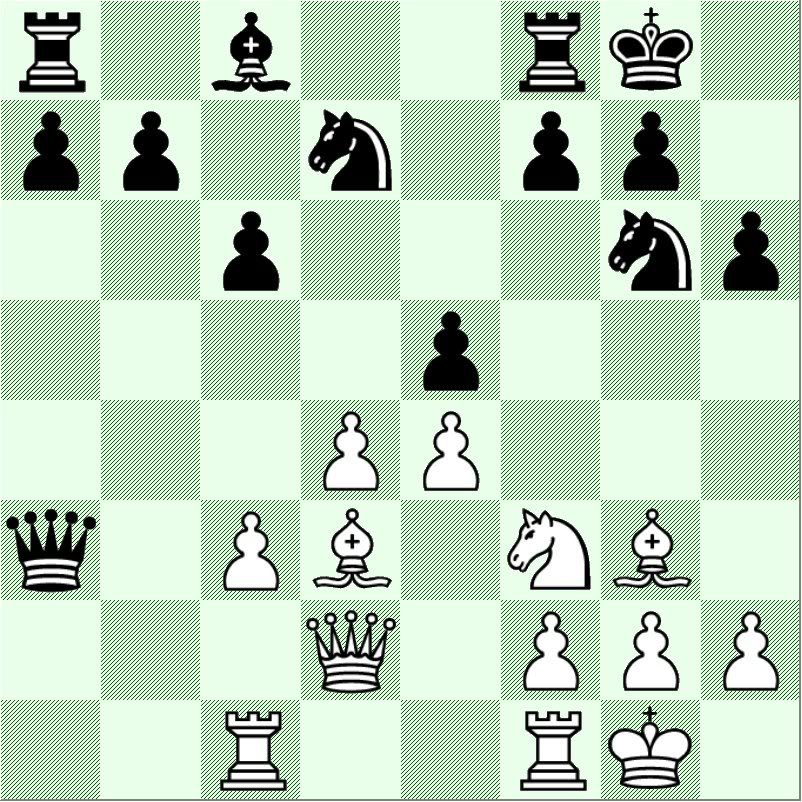
Indeed, White’s pieces quickly sprang to life while Black tried to create threats with his passed a-pawn. On move 26, Kramnik sacrificed a bishop to expose his opponent’s king. Three moves later he had a rook for two knights, but most of Black’s pieces had become immobile.











No comments:
Post a Comment